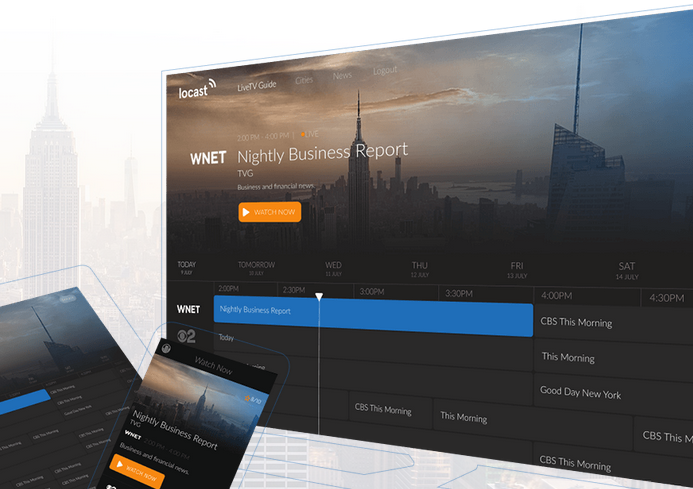Court Shoots Down Locast Copyright Exemption Argument
Puts fate of local station streaming service in doubt

The smarter way to stay on top of broadcasting and cable industry. Sign up below
You are now subscribed
Your newsletter sign-up was successful
Network broadcasters have won a big victory that puts the future of online TV station streamer Locast in jeopardy.
According to Locast, the U.S. District Court for the Southern District of New York has ruled against its copyright defense of the service.
Locast was launched under the premise that because it did not charge a user fee — it solicits donations — it did not have to ask permission from the stations or pay them to retransmit the signal online.
Also Read: Locast Court Battle Heats Up
The major broadcast networks sued.
Locast launched in January 2018, relying on Title 17, Chapter 1, section 111 (a) (5) of the Copyright Act, which for those without a copy handy covers exemptions from exclusive rights to broadcast transmissions. It grants that exemption if ”the secondary transmission is not made by a cable system but is made by a governmental body, or other nonprofit organization, without any purpose of direct or indirect commercial advantage, and without charge to the recipients of the secondary transmission other than assessments necessary to defray the actual and reasonable costs of maintaining and operating the secondary transmission service.“
Locast currently delivers TV station signals in a host of markets to more than 3 million people, according to the company.
The smarter way to stay on top of broadcasting and cable industry. Sign up below
The networks argued that the service was capitalism in nonprofit‘s clothing and the court, which reportedly summarily dismissed Locast's copyright defense, apparently agreed.
”We are disappointed that the court ruled against Locast on its copyright defense,“ said Locast's legal team at the Electronic Frontier Foundation. ”The court interpreted the law in an artificially narrow way. Congress wrote copyright’s nonprofit retransmission exception to make sure that every American has access to their local broadcast stations, and expanding access is exactly what Locast does. This ruling that nonprofit retransmitters can’t use viewer contributions to expand access will do the opposite of what Congress intended.“
EFF said that some of those 3 million users can't afford cable or get the local station off the air, so the ruling is tantamount to cutting them off from local news and info during a pandemic.
They said the court was treating copyright law as a moat around the broadcast networks.
“Locast has for too long evaded U.S. copyright laws, stealing broadcasters’ content under the guise of a not-for-profit entity," said National Association of Broadcasters senior VP of communications Ann Marie Cumming. "NAB is hopeful this illegal activity will end soon, as the U.S. District Court has stepped in to preserve the integrity of U.S. copyright laws that sustain the viability of local broadcasting.”
Contributing editor John Eggerton has been an editor and/or writer on media regulation, legislation and policy for over four decades, including covering the FCC, FTC, Congress, the major media trade associations, and the federal courts. In addition to Multichannel News and Broadcasting + Cable, his work has appeared in Radio World, TV Technology, TV Fax, This Week in Consumer Electronics, Variety and the Encyclopedia Britannica.

